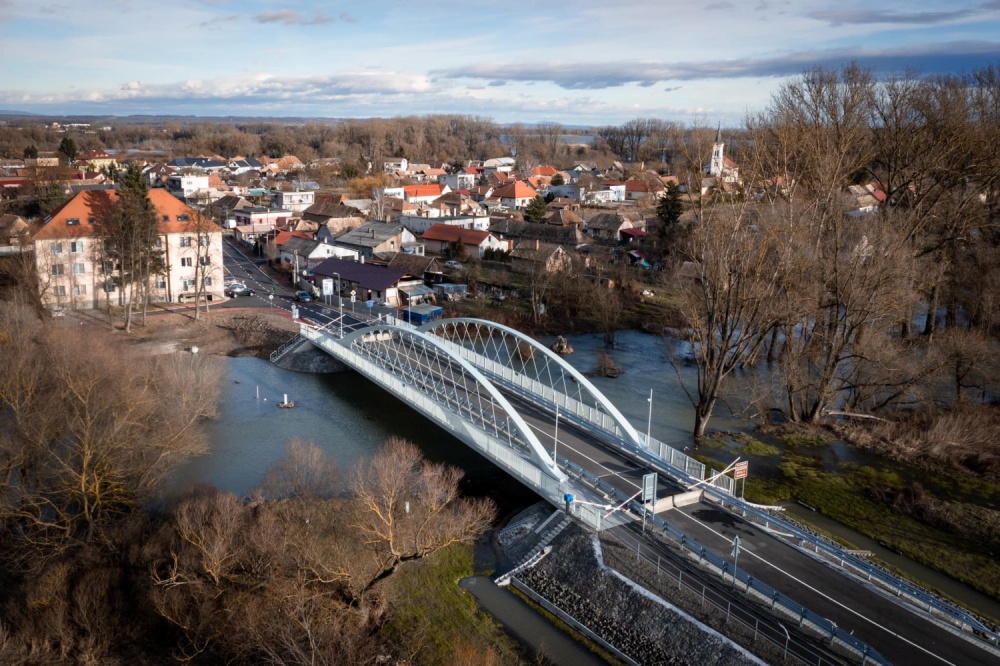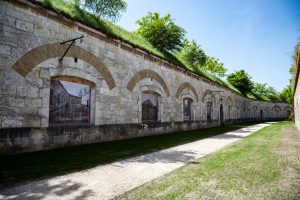
The Saint Barbara Bridge is the 40th crossing point on the border between the two countries.Continue reading

“Komárom has perhaps never developed as rapidly as it has today, as exemplified by the inauguration of the newly renovated Fort Igmánd, in which Hungarian-Slovak cooperation based on mutual respect also played an important role,” Minister of Foreign Affairs and Trade Péter Szijjártó said in Komárom (on the Slovak border, northwestern Hungary) on Friday.
At the inauguration of the project, the Minister noted that Hungarian-Slovak cooperation based on mutual respect had made the renovation of the New Fortress in northern Komárom and Fort Igmánd in southern Komárom possible, which was very timely, as the earlier renovation of the Star Fortress and Fort Monostor was only a half-success without them.
He said that the two countries had jointly applied for and won HUF 600 million (EUR 1.5 million) in EU funding, of which HUF 230 million (EUR 600,000) was allocated to the renovation of Fort Igmánd, creating a multi-functional community space.
The Minister underlined that
the Komárom fortress system is currently on the UNESCO World Heritage List as a candidate site,
and that the government is doing its utmost to ensure that it is included on the list permanently.

Photo: MTI/Bodnár Boglárka
Péter Szijjártó also pointed out that the city has probably never developed as rapidly as it is today. The government has supported seventeen major business investments in Komárom in recent years, creating HUF 640 billion (EUR 1.6 million) of investment and 4,000 new jobs.
He also noted that Komárom is in a special situation, like all cities that have been divided overnight. He recalled that during the communist dictatorship, the Danube separated the two parts of the city, with long queues to cross the bridge, but today we are in a more fortunate period, with the accession to the European Union and Schengen, the river now connects the people living here.
In this context, he also touched on relations between Hungary and Slovakia, remarking that there had been certain bumps and low points in relations when “the political leadership of the two countries could at most communicate in a less than civilized way, shouting across the Danube.”
However, he emphasized that
this is now a thing of the past, and the relationship has improved a lot thanks to the fact that both governments are working towards cooperation based on mutual respect, which is better for everyone.
It is better for Hungarians, it is better for Slovaks, it is better for the Hungarian community in Slovakia, and it is better for the Slovak community living in our country,” he concluded.
Via MTI, Featured image: Facebook/Szijjártó Péter